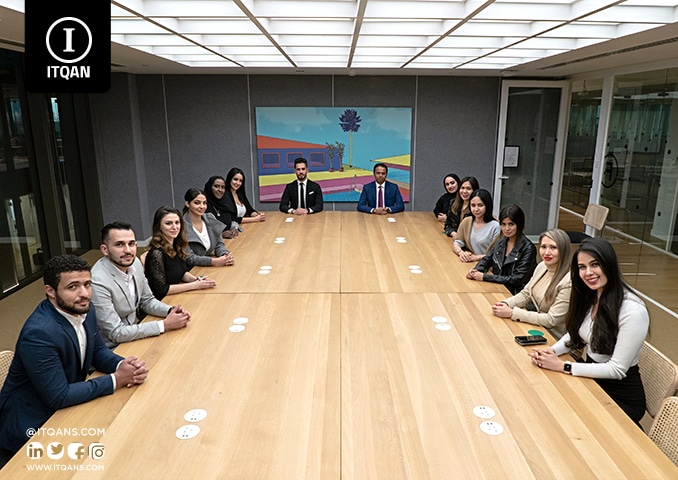Dubai’s cosmopolitan atmosphere and thriving food scene make it an attractive hub for restaurant owners and entrepreneurs. The city’s multiculturalism and ethnic variety create a melting pot of cuisines worldwide, making it a culinary paradise for residents and tourists.
However, before delving into the profitability aspect, let’s take a closer look at the restaurant business landscape in Dubai. In this article, we will explore the profitability of the restaurant business in Dubai and shed light on the factors that contribute to its success.
The Restaurant Business in Dubai: An Overview
Cultural Diversity and Culinary Delights
Dubai’s cultural diversity is a crucial factor driving the success of the restaurant business. With a large expatriate population and a mix of nationalities, the city offers various dining establishments catering to multiple palates.
From traditional Emirati dishes to international delicacies, Dubai’s food service industry caters to a diverse customer base, providing many options for residents and visitors alike.
Dubai as a Tourist Destination
Dubai’s status as a popular tourist destination further enhances the profitability of the restaurant business. The city’s remarkable attractions, such as the Burj Khalifa, Palm Jumeirah, and the Dubai Mall, draw tourists from around the globe.
These visitors seek not only luxurious accommodations but also unforgettable dining experiences. Consequently, the demand for restaurants in Dubai remains consistently high throughout the year.
Profitability of the Restaurant Business in Dubai
Growing Market and Increasing Demand
Dubai’s restaurant industry continues to experience rapid growth, fueled by the city’s economic development and increasing population. As new residential and commercial projects emerge, the demand for dining establishments surges.
This favorable market condition presents lucrative opportunities for aspiring restaurateurs and encourages expanding and developing existing businesses.
Diverse Customer Base and Niche Markets
One of the advantages of operating a restaurant in Dubai is the diverse customer base it offers. The city attracts people from all walks of life, including locals, expatriates, and tourists.
This eclectic mix creates niche markets for specialized cuisines and dining experiences. By targeting these specific segments, restaurant owners can carve out profitable niches and cater to the unique preferences of their customers.
Factors Contributing to Profitability
Strong Economic Growth and Disposable Income
Dubai’s strong economic growth and high disposable income levels make it an ideal environment for the restaurant business. The city’s favorable business conditions and tax incentives attract entrepreneurs and investors, stimulating economic development.
With a population that enjoys a relatively high standard of living, there is a steady flow of spendable income, contributing to the profitability of restaurants in Dubai.
Exponential Tourism Industry
Tourism is vital to Dubai’s economic success, and the restaurant business directly benefits from this thriving industry. The city’s strategic location, world-class infrastructure, and diverse attractions attract tourists year-round.
Restaurants capitalize on this influx of visitors by offering unique dining experiences, culinary festivals, and themed events. The combination of tourists and locals ensures a steady stream of customers, especially during peak seasons.
Ramadan and Festive Seasons
Ramadan, the Islamic holy month of fasting, is a prime time for the restaurant business in Dubai. After fasting throughout the day, families and friends gather to break their fast at Iftar, creating a significant surge in demand for dining options.
Restaurants in Dubai offer lavish iftar buffets and special menus during this period, attracting both locals and tourists. Similarly, festive seasons and public holidays provide opportunities for increased revenue through special promotions and events.
Challenges and Competition in the Restaurant Business
Despite the profitable nature of the restaurant business in Dubai, it has its challenges and competition. The market is highly competitive, with numerous dining establishments vying for attention.
Rising costs, including rent, labor, and ingredients, pose financial challenges for restaurant owners. Maintaining consistent quality, delivering exceptional service, and keeping up with changing trends and customer expectations require continuous effort and adaptation.
Strategies for Success in the Restaurant Business in Dubai
To thrive in the competitive landscape of Dubai’s restaurant business, owners need to employ effective strategies that set them apart from the competition. Here are a few fundamental approaches:
Unique Concept and Targeted Marketing
Creating a unique concept and brand identity is crucial for success. By offering something different, be it a fusion of cuisines, a specific dining theme, or a signature dish; restaurants can attract a loyal customer base.
Effective online and offline marketing targeting the right audience segments can significantly boost visibility and profitability.
Embracing Technology and Innovation
Incorporating technology and innovation into restaurant operations can enhance efficiency and customer experience.
Online reservation systems, mobile ordering apps, and social media engagement are examples of how technology can streamline processes and attract tech-savvy customers. Adopting new trends and staying ahead of the curve can help restaurants remain relevant and appealing.
Exceptional Customer Experience
Providing an exceptional customer experience is crucial for long-term success. Every aspect contributes to customer satisfaction, from warm and personalized service to attention to detail in food presentations.
Engaging with customers, actively seeking feedback, and constantly improving service quality is essential for building a loyal customer base and generating positive word-of-mouth.
Frequently Asked Questions
Is it easy to start a restaurant business in Dubai?
Starting a restaurant business in Dubai requires careful planning and adherence to local regulations. It is advisable to consult with experts familiar with the legal and licensing procedures to ensure a smooth establishment process.
What types of cuisines are popular in Dubai?
Dubai offers many popular cuisines, including Emirati, Arabic, Indian, Pakistani, Iranian, Chinese, Japanese, Italian, and many more. The city’s diverse culinary scene caters to various tastes and preferences.
How significant is the online presence for restaurants in Dubai?
Online presence is crucial for restaurants in Dubai, as it allows them to reach a wider audience, promote their offerings, and engage with customers. Having a well-designed website and an active social media presence is highly recommended.
Are buffets a popular dining option in Dubai?
Yes, buffets are pretty popular in Dubai. Many restaurants offer all-you-can-eat buffets, particularly sought after during festive seasons, special occasions, and Iftar during Ramadan.
What role does Ramadan play in the restaurant business in Dubai?
Ramadan is a significant period for the restaurant business in Dubai. Restaurants typically offer special iftar menus and buffets, attracting locals and tourists looking to break their fast in a festive atmosphere.
How can restaurants in Dubai cater to niche markets?
Restaurants can cater to niche markets in Dubai by specializing in specific cuisines or dining experiences. For example, they can focus on vegan or vegetarian options, gluten-free menus, or offer unique cultural dining experiences.
What are the main challenges faced by restaurant owners in Dubai?
Some primary challenges restaurant owners face in Dubai include rising costs, intense competition, retaining skilled staff, ensuring consistent quality, and adapting to changing customer preferences.
How important is customer loyalty in the restaurant business in Dubai?
Customer loyalty is vital for the long-term success of restaurants in Dubai. Building a loyal customer base through exceptional service, personalized experiences, and consistent quality helps generate repeat business and positive word-of-mouth recommendations.
Conclusion
In conclusion, the restaurant business in Dubai can be highly profitable due to the city’s cultural diversity, exponential tourism industry, and strong economic growth. The market offers a diverse customer base and niche opportunities for specialized cuisines.
However, challenges such as competition, rising costs, and maintaining quality require careful consideration. By implementing effective strategies, embracing innovation, and focusing on delivering exceptional customer experiences, restaurant owners can maximize their profitability and thrive in the dynamic culinary landscape of Dubai.







